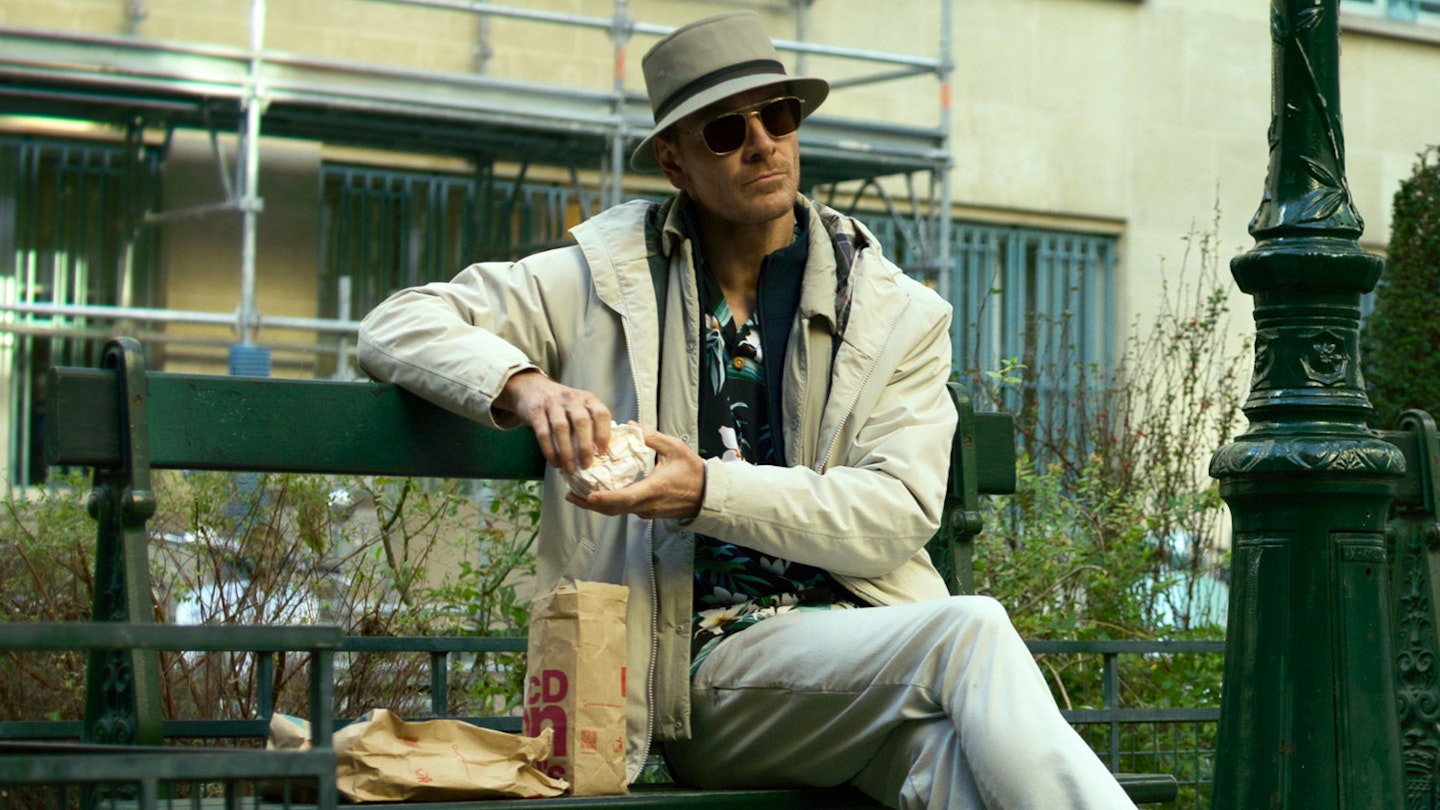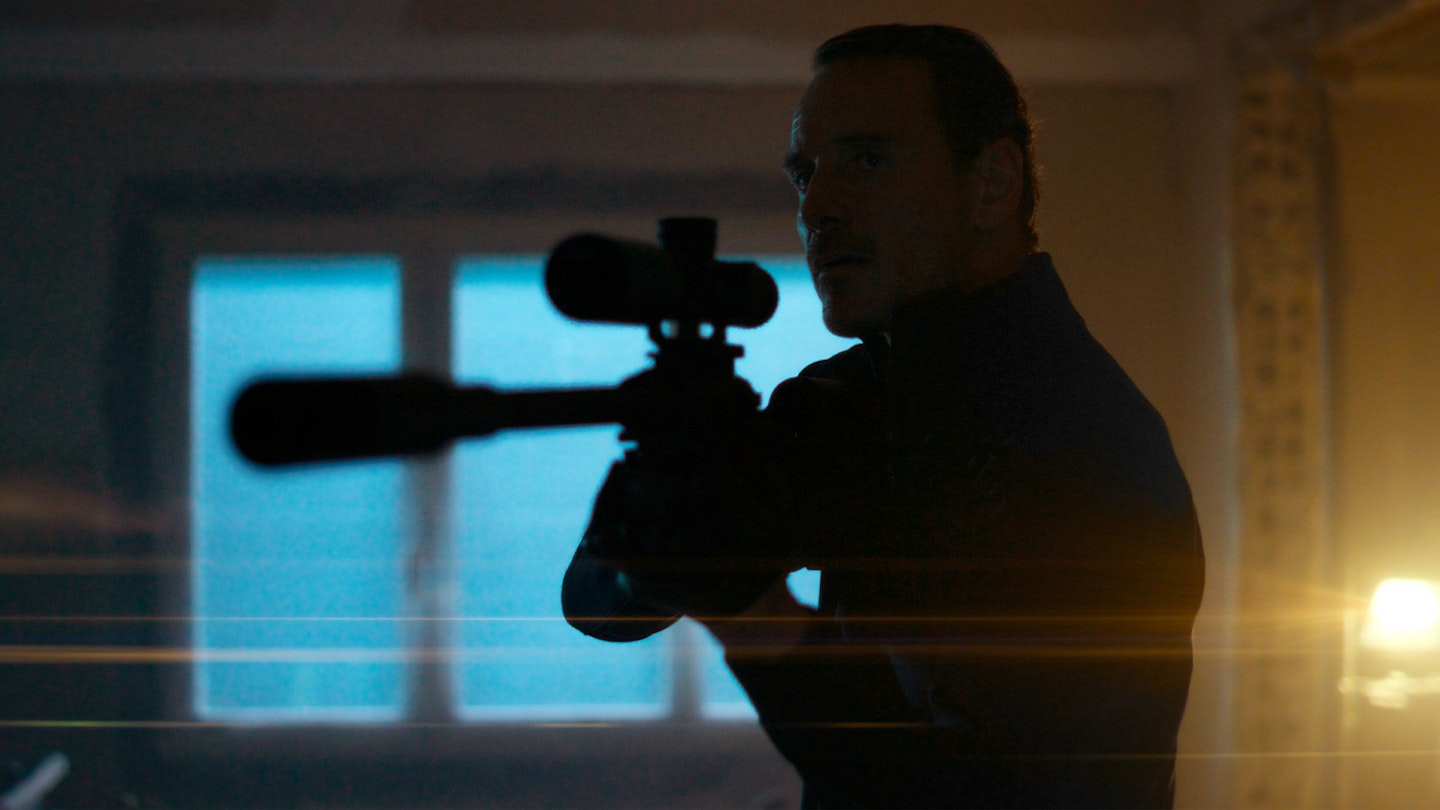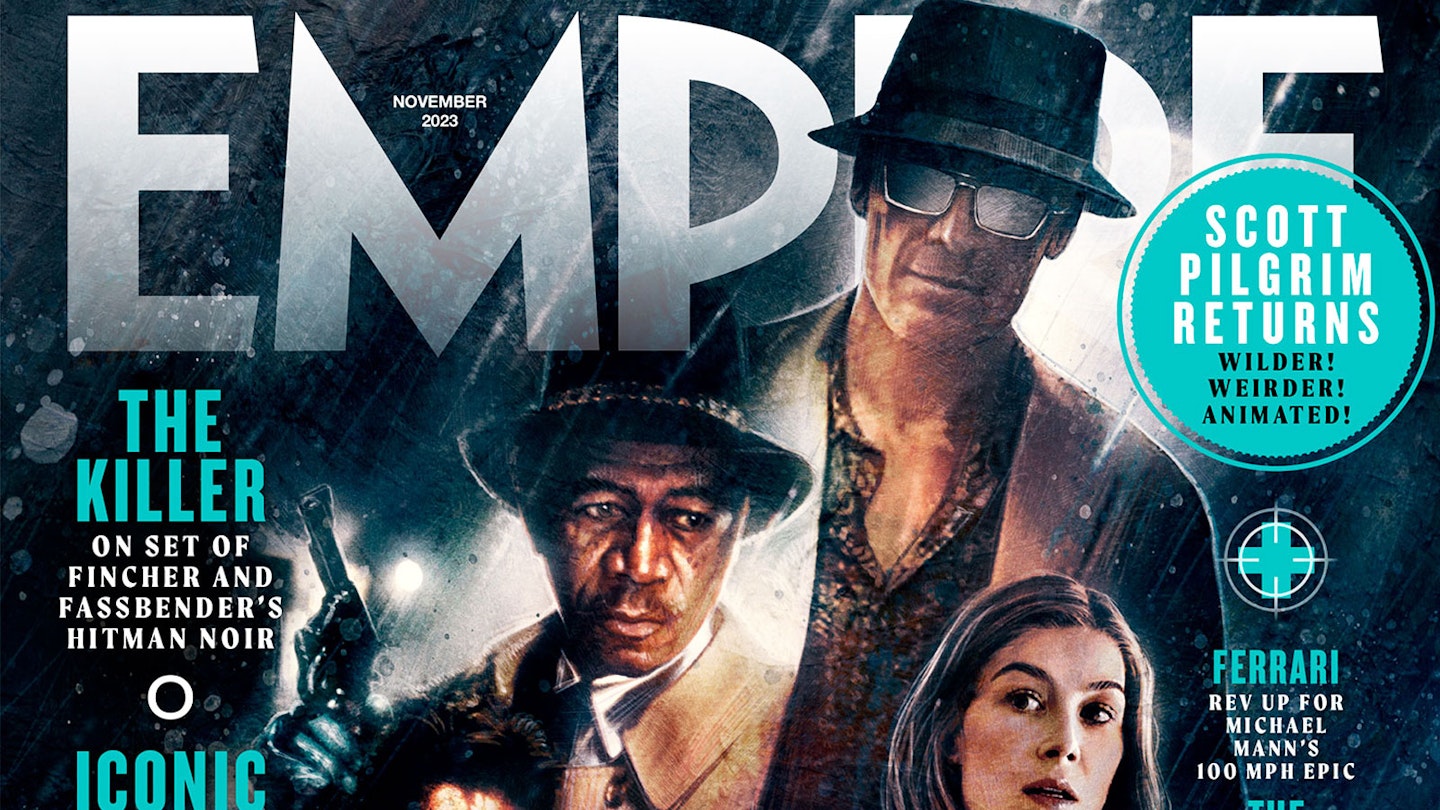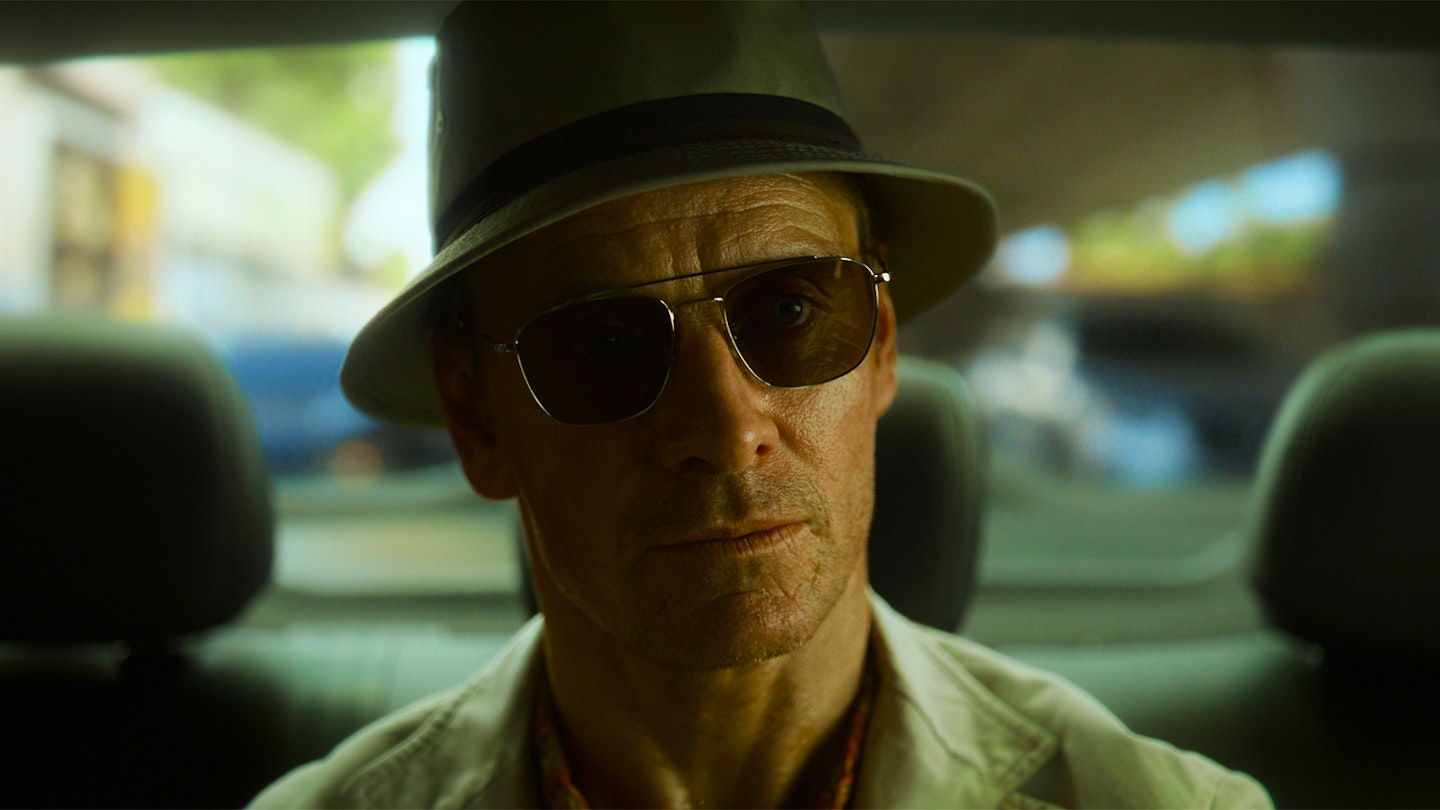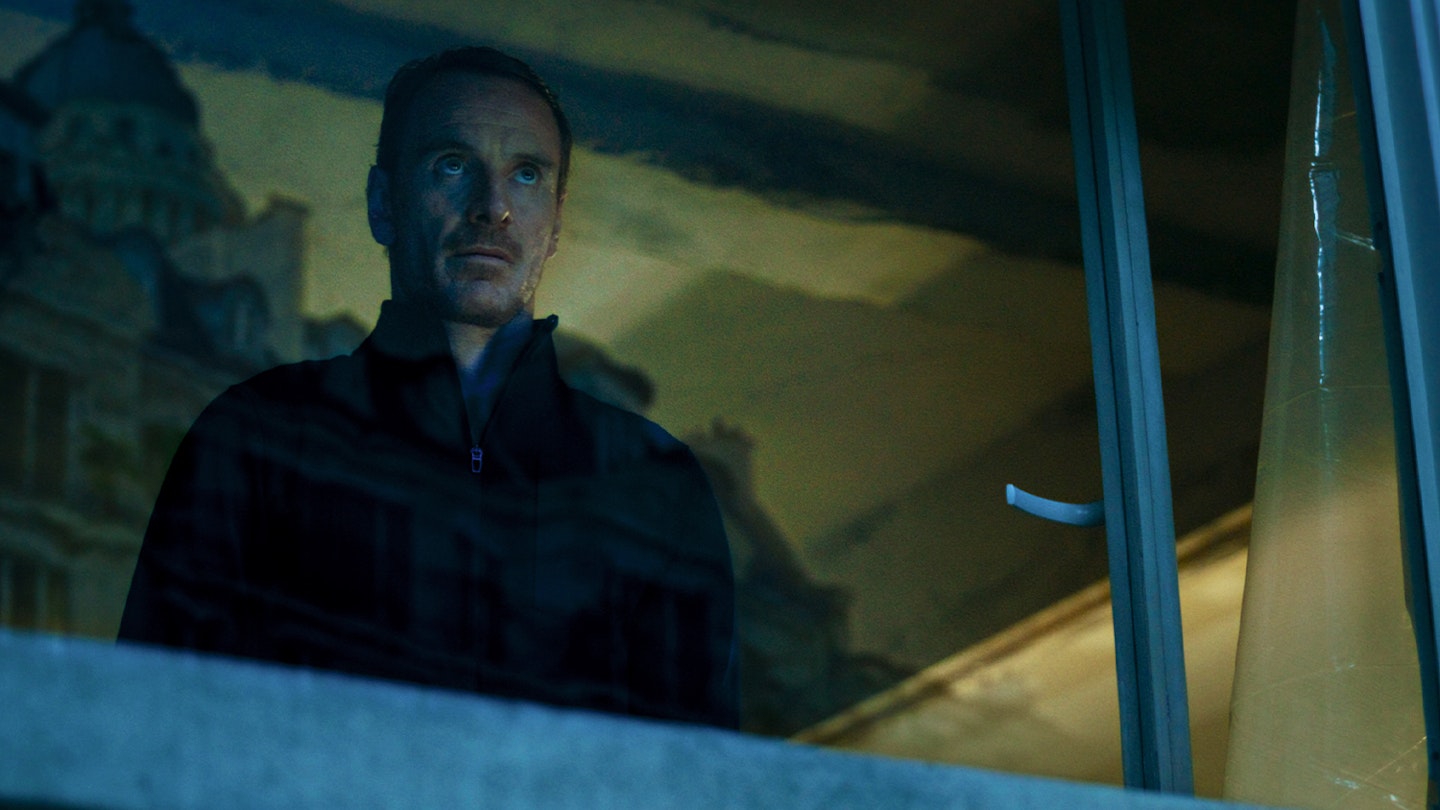David Fincher is back on familiar terrain. His last film, 2020’s Mank, felt like an unusual left-turn: a deeply personal period passion project, co-written with his late father, it was as sweepingly romantic as it was slyly cynical — but, with such a narrow focus and such niche preoccupations, it held less mainstream appeal than his usual fare. With The Killer (adapted from the French graphic novel Le Tueur, by writer Matz and artist Luc Jacamon), the director returns to the kind of material that cemented his status as one of Hollywood’s most singular, incisive, ingenious genre filmmakers: bringing his unique artistic rigour to familiar blockbuster components.
It’s thrilling to see him back in the thriller world. A sweatily suspenseful opening sequence (the film comprises six chapters, plus prologue and epilogue; even the structure is neat) establishes the universe with ferocious clarity. As that prosaic title suggests, our focus is almost entirely on one assassin, a hitman-for-hire never named, and played with unblinking, icy intensity by Michael Fassbender — his first screen role in four years. When we meet him, he’s in the midst of a job: to take out a wealthy target in a luxury Paris hotel.
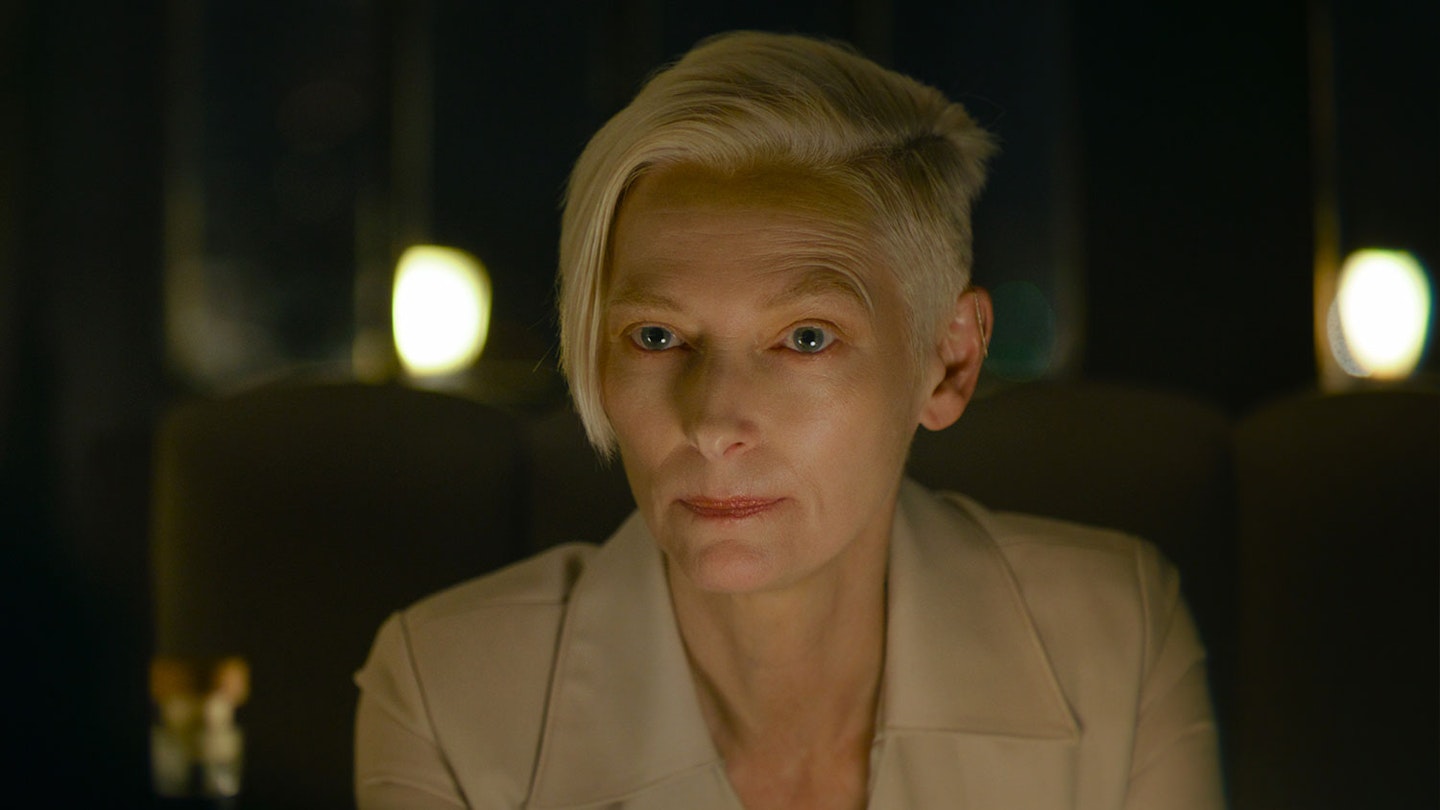
Through Fassbender’s coolly delivered, dry-as-dust voiceover, which falls somewhere between first-person novelistic narration and the character’s own internal monologue, we learn a little of what it takes to do what he does. He is pure efficiency, methodical to the nth degree; every scenario gamed, every outcome foreseen. He practises yoga and repeats meditative mantras (“Stick to the plan... Weakness is vulnerability”), which would sound like new-agey corporate motivation techniques, if they weren’t in service of murder. He listens to The Smiths to slow his resting heart rate, Morrissey’s morose warbling penetrating the film’s soundtrack throughout (and now, hilariously, forever associated with sociopaths). He is, in short, a well-oiled machine.
It is pure pleasure to luxuriate in imagery made with such obvious, deliberate care.
And then... something goes wrong. His Parisian hit — a simple “Annie Oakley” job, as The Killer puts it — goes awry, seemingly down to a very human distraction, sowing the first shred of doubt that this cold, heartless man is as robotically detached as he claims. It sets in motion a series of events that sees his stock- in-trade violence seep into his private life, initiating a jet-setting revenge yarn that recalls everything from Death Wish to Kill Bill.
Though nothing quite matches that opening salvo for pure cut-glass tension, some brilliantly staged sequences soon follow. Particular shout-outs must go to a staggeringly well- choreographed fight with another man known only as ‘The Brute’, played by Sala Baker (aka Sauron from Peter Jackson’s The Lord Of The Rings), which could jostle John Wick: Chapter 4 for best fight scene of the year; and a more cerebral stand-off with a fellow assassin, played with typical intrigue by Tilda Swinton.
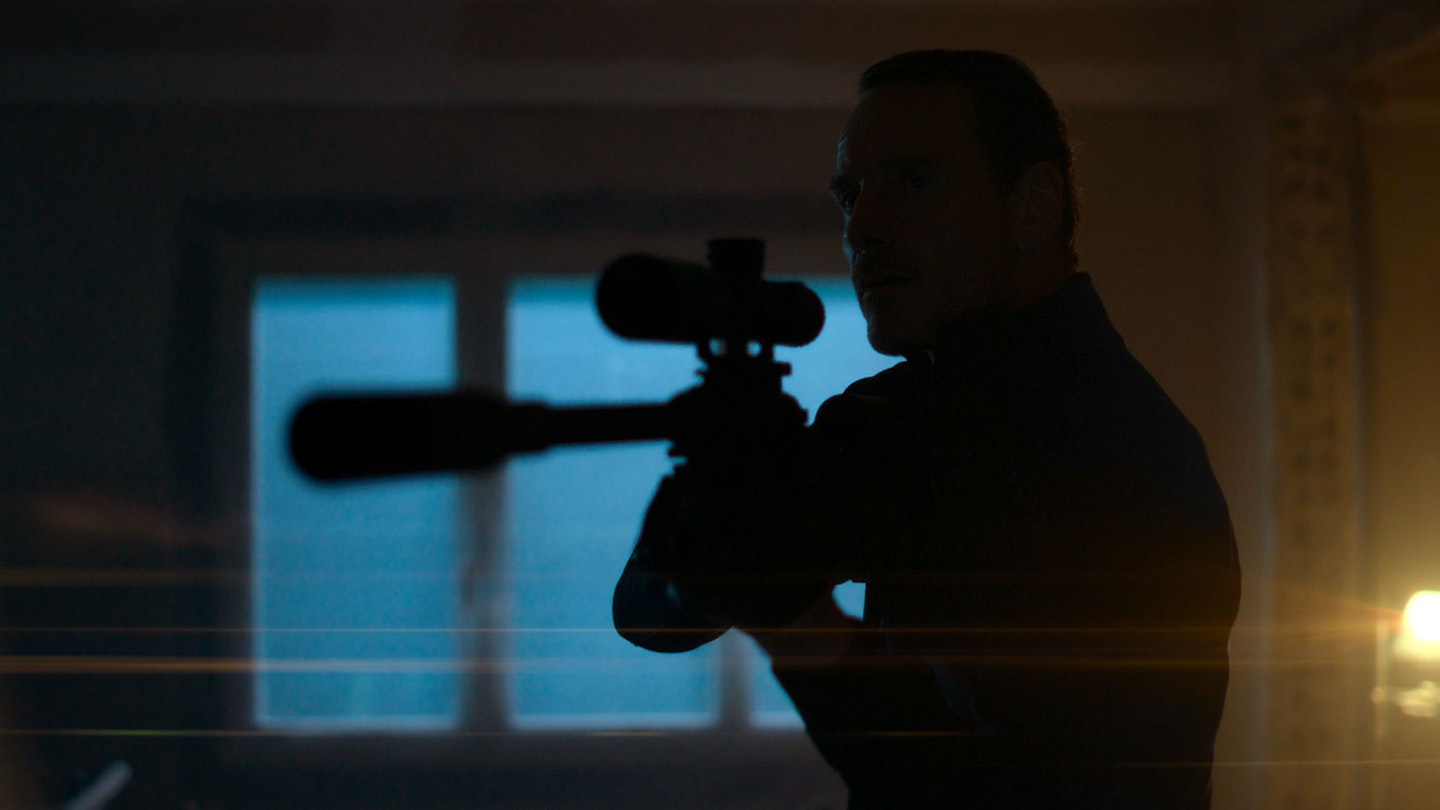
Throughout it all, as you might well expect, Fincher’s filmmaking is immaculate. It is pure pleasure to luxuriate in imagery made with such obvious, deliberate care. You feel his precise framing, his careful composition, his notorious multiple takes. It seems, too, like Fincher is drawing on his past strengths: you can recognise the patient procedural plotting of Seven or Zodiac, the nihilistic themes and sardonic narration of Fight Club, the ruthless, unsettling violence of The Girl With The Dragon Tattoo, the outlandish moral relativism of Gone Girl.
But what does it all amount to? To the very end, The Killer remains something of a cipher, a blank canvas of a human. We are welcomed inside the head of this unthinkable perspective, without ever truly learning the whys or the wherefores. Is Fincher pondering the soul-cost that such a vocation might bring, a theme even the most recent Bond films have toyed with? Is it another angry screed on capitalism and masculinity? Should we even draw parallels between The Killer’s diligent approach to work and Fincher’s own fastidiousness (a lazy comparison, perhaps, but one the director seems to invite)? Or should we just take it all at face value — simply a slickly made genre exercise, enough on its own merits?
After such a strong build-up, the film’s ultimate arm’s-length aloofness might feel frustrating, especially in its muted finale. For a director who crafted two of the best endings in cinema history (Fight Club and Seven), The Killer’s climax, ultimately, proves to be curiously anticlimactic. David Fincher is unarguably a master filmmaker, so with every new film of his, fairly or not, you expect a masterpiece. The Killer doesn’t quite reach that level — but even then, most filmmakers would kill to make something this good.
